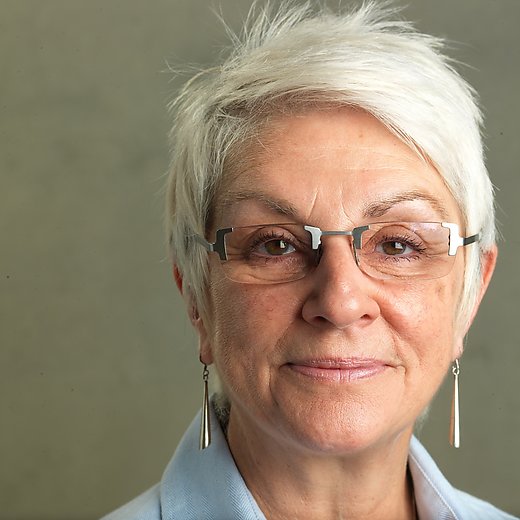
Gwen Thomas has worked behind the scenes for nearly 40 years on behalf of photographers, ending up as the Legal & Business Director of the Association of Photographers, with an unparalleled knowledge of the law and business as it affects professionals. At the end of September 2015 she retires. We’re delighted to publish this short interview with Redeye’s Paul Herrmann to mark her unique contribution to photography.
Paul Herrmann (PH): Could you outline your roles at the AOP - what you’re involved in, what occupies the bulk of your time or has been concerning you most recently?
Gwen Thomas (GT): My days at the AOP are mainly spent answering members queries – ranging from copyright infringements and contractual issues to carnets and insurance in other countries. I once had a call from a member as he was being arrested at the Eiffel Tower in the middle of a shoot! The rest of the time is researching and making sure we are up to date with legislation that affects photographers or replying to consultations from the UK and EU Governments.
PH: How have things changed for photographers over the past few years, and which way do you see things going? And what are the constants that haven’t changed?
GT: A lot has changed since I started in the industry – shoots used to be fun in the days when money was no object and the largest of jobs was agreed over a bottle (or two) of wine with no paperwork involved and no problems! Now paperwork is ‘king’, money is tight and everything has become more businesslike. Photographers are more isolated in the digital world – gone are the days of going to the lab and chatting with other photographers about their work, now it’s back to the studio and a night in front of the computer.
I can’t see this changing; assistants and students are more serious about business and this will follow through when they are full time photographers. No bad thing in this litigious world! Photographic courses must change though – without education, on the business side of photography, fledgling photographers undermine the industry and it will become impossible to sustain a living. This is already evident with camera phones and the ‘everyone is a photographer’ attitude.
PH: Are you seeing an increase in cross-genre work – are photographers now more likely also to be film-makers, web designers etc, or are they better off sticking to their core skills?
GT: Moving image is definitely the way so many are going – some through choice but other because clients are demanding stills and footage from shoots. I don’t think anyone can stand still and not embrace change – this was evident when the digital world emerged, stalwarts who thought it wouldn’t last were quickly left behind.
PH: What’s the place of the professional associations, including the AOP, in photography? How has the AOP’s work, and your work in it, changed since you started? Which way do you see that going?
GT: The role of the trade association has changed and is now more about educating and fighting for change but without the input of its members. I think this is mainly because people are joining for different reasons. Initially they were a way of bringing like minded people together, often with a single cause, members stood up to be counted when the need arose, and weren’t afraid to stick their heads above the parapet. Now, it is expected that their trade bodies will do it for them, every trade association still has a number of the ‘old guard’ who rise to the occasion when needed, but inevitably these will disappear. Members need to realize that a trade association can only work if it’s a two way relationship – members can’t just expect to get something without giving back. We can talk and write 'til we’re blue in the face but if photographers just carry on accepting bad contracts and working conditions, we can’t change it.
PH: What would you advise photographers coming into the profession - top tips, dos and don’ts.
GT: Join a trade association and make a difference! Don’t think you can muddle through alone and never be afraid to say no. I often get calls from non-members who have been commissioned but have absolutely no idea what they are doing – I’ve even been asked what camera they should use! Sorry, you shouldn’t be in the business, leave it to the pros until you have more experience. Everyone has to start somewhere but know your limits.
PH: What achievements over the last 40 years are you most proud of?
GT: Beyond the Lens definitely – I can’t quite believe how well it’s been embraced and accepted into every day practice, and even adapted and published by trade associations in other other countries. I’ve certainly enjoyed getting members out of sticky situations; negotiating with defendant’s lawyers on their behalf (and discovering I knew more than the lawyer!); giving talks and finding out that the students are really excited by copyright! I’ve met and worked with some great people who are still trying to make a difference – I hope they get the support they need.
~
Photo of Gwen Thomas © David Partner.
Please log in to post comments below.